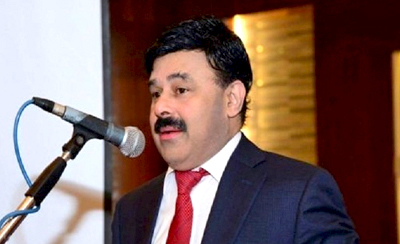Dubai, Nov 26: An Indian philanthropist from Oman has given Rs 10 lakh to a jobless compatriot who has been living on the terrace of a building in the UAE for more than eight months without proper food, media report said today.
 Sajeev Rajan, an electrician in his early forties, belongs to Kollam in Kerala where his wife, two children and ageing parents live.
Sajeev Rajan, an electrician in his early forties, belongs to Kollam in Kerala where his wife, two children and ageing parents live.
Indian philanthropist from Kerala Dr K T Mohammed Rabeeh Rabeeullah, chairman and managing director of a healthcare conglomerate, came from Muscat and handed over 5,000 dirham (Rs 93,272) to Rajan for immediate relief. He also promised to transfer Rs 10 lakh to his bank account in India, Khaleej Times quoted Rajan's friend Biju as saying.
He was left with no other option but to live on the terrace of a building in Ajman city because his employer had refused to return his passport after settling his dues, the paper said.
His company officials visited the Indian consulate and agreed to return his passport at the earliest.
The Indian mission in the UAE and social workers have come forward with moral and material support for the man.
"It is a big relief for me because my pocket is empty. I have not received any money for the past eight months and my travel back home seemed impossible," Rajan said.
He spent 236 days on the terrace because he does not have a job or money to get a bed space, the report said.
He has been surviving with the generosity of some construction workers and shop owners, it said.
"My contract ended on March 11 and I wanted to go home. Working for 900 dirham (Rs 16,761) per month did not meet my expectations," he said.
Ranjan alleged that his employer was not ready to relieve him from work and send him back home after clearing his gratuity and leave salary.
On March 21, Ranjan was forced to vacate the company accommodation in Ajman.
"The employer from Punjab, India, promises to return my passport in front of officials who mediate for my release, but once he leaves their office, he refuses to hand it over to me," he was quoted as saying by the paper.
After his plight was highlighted by the paper, several people came forward with offers to buy air tickets, give him a job among others, the report added.




Comments
Add new comment